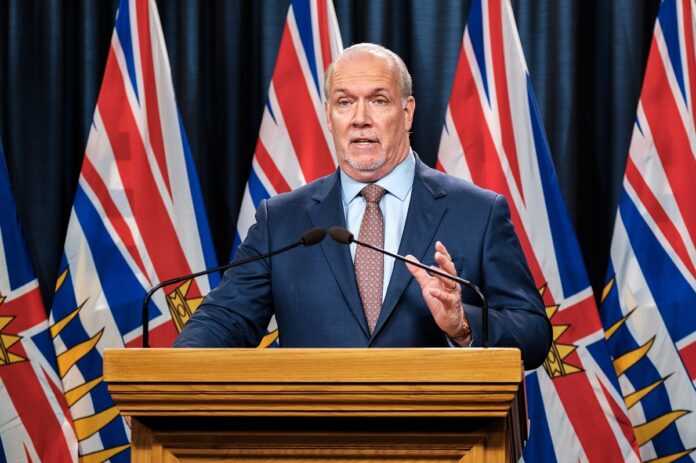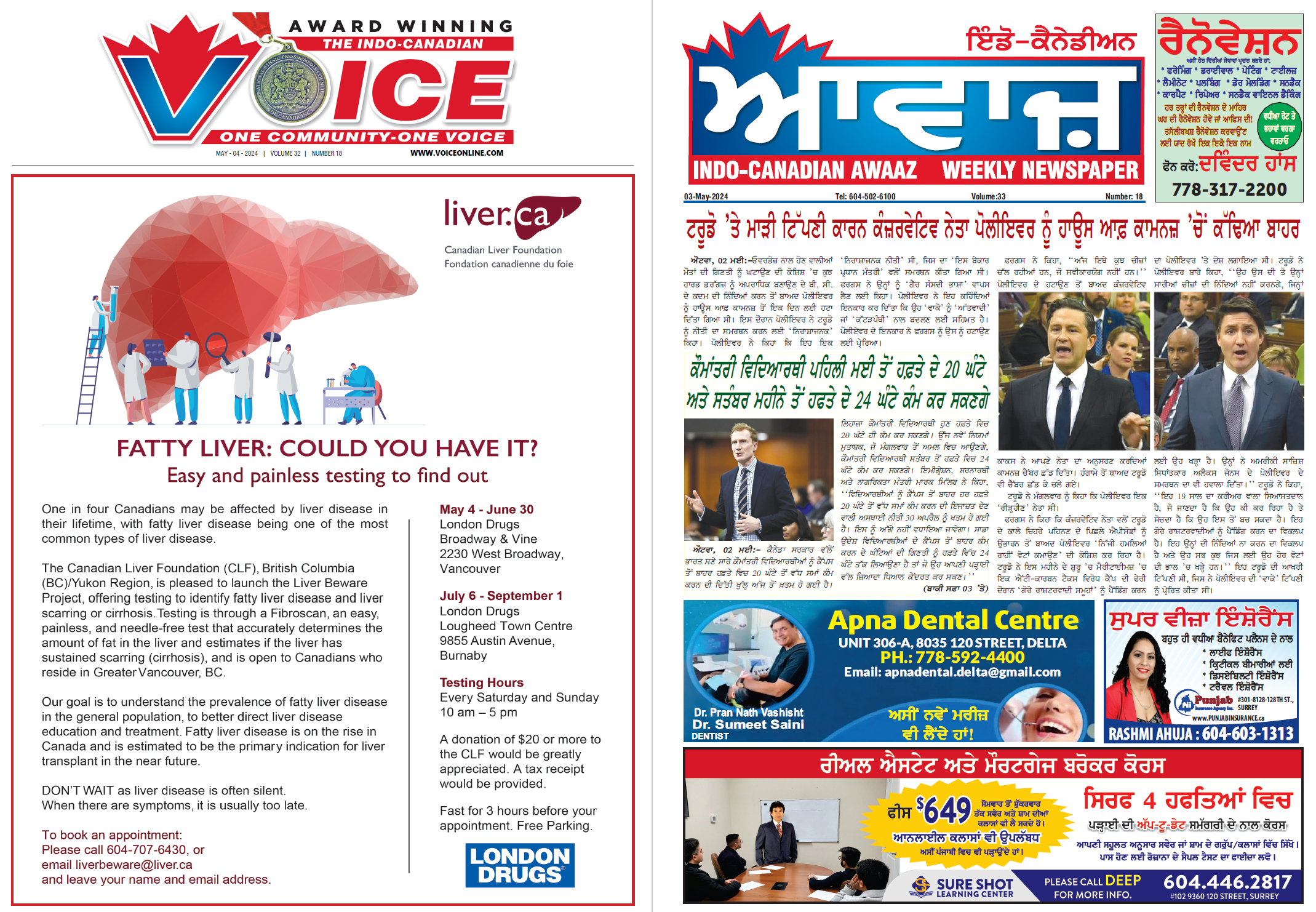THE B.C. government is appointing an advisory committee to help develop a long-term provincial shipbuilding strategy to ensure the continued growth of this vibrant sector and create good, family-supporting jobs.
“The shipbuilding industry has been a key contributor to B.C.’s economy for more than 130 years,” said Premier John Horgan on Wednesday. “There is an opportunity to leverage the recent revival in B.C.’s marine sector to set up the entire industry for consistent growth, which means more families will be able to find good jobs in their own communities.”
B.C. is home to more than 1,000 companies that make up the industrial marine sector that supports shipbuilding, refit, repair, maintenance and supply-chain activities. This growing sector, driven by shipbuilding contracts such as Seaspan Shipyards’ federal polar icebreaker project, contributes $1.4 billion to GDP and directly supports more than 11,950 jobs.
The BC Shipbuilding Advisory Committee will recommend strategic actions for government and industry to support robust, sustainable and innovative shipbuilding, ship repair and related marine industries in B.C. The work of the committee and the shipbuilding strategy aligns with the B.C. government’s goal to build a long-term economic plan that will support the province’s future growth in the years ahead.
The B.C. government committed to the development of a made-in-B.C. shipbuilding strategy in this year’s throne speech, expanding on its mandate to support the increase of capacity, capability and competitiveness for B.C. shipyards and associated businesses.
“A comprehensive shipbuilding strategy will allow B.C. to take full advantage of our coastal strengths and build a healthier, more sustainable marine economy,” said Ravi Kahlon, Minister of Jobs, Economic Recovery and Innovation. “The BC Shipbuilding Advisory Committee will help ensure our industrial marine sector is a global leader and poised for long-term growth that is innovative and inclusive.”
The BC Shipbuilding Advisory Committee is composed of two separate bodies: the BC Shipbuilding Industry Working Group and the BC Shipbuilding Innovation Advisory Council.
The BC Shipbuilding Industry Working Group, chaired by Robert Allan, President of the Association of BC Marine Industries (ABCMI), is made up of long-standing sector experts with knowledge and insight that will inform the work of the strategy. The industry working group includes major players in the industry who will have an active role in advancing sector initiatives in the near and longer term.
The BC Shipbuilding Innovation Advisory Council, chaired by Brenda Eaton, Chair of BC Ferry Services’ board of directors, will provide high-level guidance and objective feedback to the Industry Working Group. The council will also advise on engagement and consultation with stakeholders. It includes senior representation from the B.C. and federal governments, labour and academia.
Indigenous partners will be engaged throughout the strategy development process to ensure their perspectives are heard and the positive impacts of strategy activities are inclusive of Indigenous communities.
B.C.’s shipbuilding strategy will have four main objectives:
* Build and support the capacity and competitiveness of B.C. shipyards to win more shipbuilding contracts, and refit-repair and maintenance work.
* Advance innovation including low-carbon technologies to help B.C. become a hub of green, low-carbon marine vessels.
* Expand B.C.’s market share and opportunities related to shipbuilding and supply chains.
* Support marine workforce development, addressing labour shortages, equity and inclusion in the B.C. shipbuilding industry.
“Shipbuilding and its related industries form a vital component of the economy on the North Shore and the jobs supported by the polar icebreaker project will greatly benefit local families,” said Susie Chant, MLA for North Vancouver-Seymour. “A shipbuilding strategy for B.C. will help ensure these industries and the communities supported by them thrive for the long term.”
Robert Allan, Chair of the industry working group, said: “The federal government’s recent decision to award the contract for Canada’s next polar icebreaker to Seaspan Shipyards demonstrates how the federal National Shipbuilding Strategy has reinvigorated large shipbuilding on the West Coast and, by extension, is providing the B.C. marine industry the opportunity to adjust to the new global maritime dynamic, focused on environmental consciousness in ship design, shipbuilding, ship repair and vessel maintenance. It is gratifying to see the provincial government is committed to seeing growth and progressive development in this vitally important sector of the B.C. economy.”
Brenda Eaton, Co-Chair of the Innovation Advisory Council, said: “BC Ferries keenly understands the importance of a thriving, innovative industrial marine sector. This sector not only provides critical support for the maintenance and operations of BC Ferries’ fleet, but it creates jobs for British Columbians and makes a significant contribution to our economy. We are honoured to be part of government’s advisory committee that is shaping this important strategy for the future of our industrial marine sector.”
The BC Shipbuilding Advisory Committee will deliver a final report and recommendations to the B.C. government in summer 2022.
BACKGROUNDER
About British Columbia’s industrial marine sector
* The industrial marine sector contributes about $2.4 billion annually to B.C.’s economy and employs approximately 22,000 people.
* The B.C. government supports the industrial marine sector through workforce development, technology investment and industrial development, such as:
– the B.C. Shipbuilding and Ship Repair Industry Tax Credit, for eligible companies that employ apprentices in the shipbuilding and repair industry;
– $400,000 supply-chain resiliency grant to the Association of BC Marine Industries in March 2021; and
– ongoing advocacy for the polar icebreaker contract, including working with other provinces and letter of support to the prime minister, resulting in Seaspan’s successful bid.
* B.C. has about 27,000 kilometres of coastline.
* The Port of Vancouver is Canada’s largest port and conducts trade with more than 170 countries.
* The Port of Prince Rupert is Canada’s third-largest port and has North America’s shortest shipping route to Asia.
* Victoria’s Esquimalt Graving Dock is the largest ship-maintenance facility of its kind in the Pacific Northwest and accommodates a wide variety of vessels, including cruise ships more than 300 metres long.
* Seaspan Shipyards of North Vancouver was selected to deliver the non-combat vessel package under the federal government’s National Shipbuilding Strategy (NSS).
* This work, worth billions of dollars to the B.C. economy, supports good, high-quality jobs while building a sustainable shipbuilding industry over the long term.
* Seaspan delivered three Offshore Fisheries Science Vessels to the Canadian Coast Guard in 2019 and 2020, completing the first class of ships under the NSS.
* The contract to construct and deliver a polar Icebreaker was awarded to Seaspan in May 2021 and will support 1,400 direct jobs in B.C., in addition to spinoff economic opportunities.














